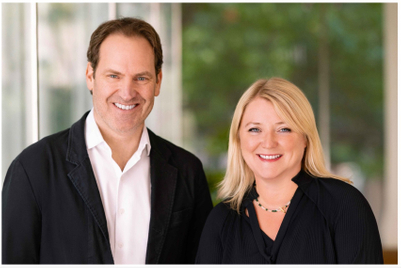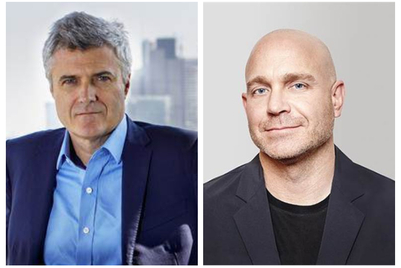
WPP made a pre-tax loss of £2.79 billion (US$3.89 billion) in 2020 after taking a huge “non-cash” impairment charge on the value of some of its agencies because of the pandemic.
The world’s biggest agency group by staff numbers also revealed it lost 6,648 roles as headcount fell to 99,830 at the end of December from 106,478 a year earlier.
Leaving aside the £3.1 billion ($4.3 billion) impairment charge, WPP made a headline operating profit of £1.26 billion ($1.76 billion), down 19% from 2019, and improved its balance sheet by increasing cash flow and reducing net debt.
Mark Read, chief executive of WPP, was upbeat about the recovery from Covid-19 as revenue decline improved in Q4 and the year ended up being better than initially feared at the start of the virus crisis.
Annual revenues less pass-through costs, WPP’s preferred measure of revenue performance, fell 8.2% to £9.76 billion ($13.7 billion) in 2020—with a 6.5% decline in Q4 compared with 7.6% in Q3 and 15.1% in Q2.
Read said: “We see many areas of attractive growth for WPP, from the permanent shift to ecommerce, the digitisation of media and the need from our clients to convert brand purpose into action. The past 12 months have demonstrated the importance and impact of communications.
“The demand from clients for simple, integrated solutions that combine outstanding creativity with sophisticated data and technology capability is only set to grow and, while uncertainties remain around the impact of the vaccine roll-out and economic growth, we continue to expect 2021 to be a year of solid recovery.”
North America fell 5.8%, the UK dropped 10.5%, Western Europe 8.1% and the rest of the world, including Asia-Pacific, 10.3% last year.
VMLY&R was “the best-performing integrated agency”, returning to growth in Q4 and “demonstrating its improving business momentum since the merger”.
Wunderman Thompson “improved slightly quarter on quarter”, while trends at Ogilvy and Grey “marginally deteriorated”.
Group M was down 4.1% in Q4, which was similar to Q3.
On an annual basis, WPP was the third-best performer of the big six agency groups during the coronavirus downturn, although some of its rivals use different methodology to calculate revenues.
WPP was behind Interpublic (down 4.8%) and Publicis Groupe (down 6.3%) but ahead of Havas (down 9.9%), Omnicom (down 11.1%) and Dentsu (down 11.1%).
All of the agency groups cut jobs heavily, including Omnicom and Dentsu, which each axed about 6,000 roles.
WPP previously said at an investor day in December that it expects mid-single digit revenue growth in 2021 and 2022 and that it will hire again, with plans to add 10,000 jobs by 2025.
Impairment charge of £3.1 billion ($4.3 billion)
WPP had previously announced a large part of its impairment charge at the half-year results in August but the company has carried out further tests on goodwill and made other accounting revisions, including changes to working capital, which affected annual results.
There was a goodwill impairment charge of £2.82 billion that “largely reflects the adverse impacts of Covid-19 to a number of businesses in the Group”, plus a further £300m impairment for associate companies, WPP said.
“The impact of these global economic conditions and trading circumstances was sufficiently severe to indicate impairment to the carrying value of goodwill.”
The impairment charges included £1.2 billion for Wunderman Thompson, £517 million for VMLY&R, £145 million for BCW and £841 million for specialist agencies, including £306 million for Geometry Global and £185 million for Landor and Fitch.

Read said the impairment charges were to be expected because of the scale of the Covid-19 downturn, and much of it relates to acquisitions made decades ago, particularly of Y&R Group, which had many agencies including Y&R and Wunderman.
He explained: “We paid $5.4 billion for Y&R Group in 2001 at 30-plus times earnings at the height of the bubble. It’s no surprise in the biggest recession since The Great Depression of 1706 [in the UK] that we look at the carrying value of our assets and there might be a non-cash impact on the balance sheet.”
Asked how staff at the agencies should view the impairments, he said: “Staff should not in any way be concerned about the impairments. The level of the impairment reflects what we paid for the company, when the company was acquired, what percentage of the company was part of Y&R Group.”
He went on: “I don’t want to minimise it but from a staff perspective, they should look at the growth and [recent] success of the companies,” citing client work and recent wins for VMLY&R at the Campaign US and Wunderman Thompson at the Campaign UK Agency of the Year Awards.
It is thought WPP has not taken a significant impairment on the value of its assets for decades.
Read took over from Sir Martin Sorrell in 2018.
(This article first appeared on CampaignLive.co.uk)


.jpg&h=334&w=500&q=100&v=20250320&c=1)
.jpg&h=334&w=500&q=100&v=20250320&c=1)


.jpg&h=334&w=500&q=100&v=20250320&c=1)

.jpg&h=334&w=500&q=100&v=20250320&c=1)


.jpg&h=334&w=500&q=100&v=20250320&c=1)




.jpg&h=268&w=401&q=100&v=20250320&c=1)
.png&h=268&w=401&q=100&v=20250320&c=1)


